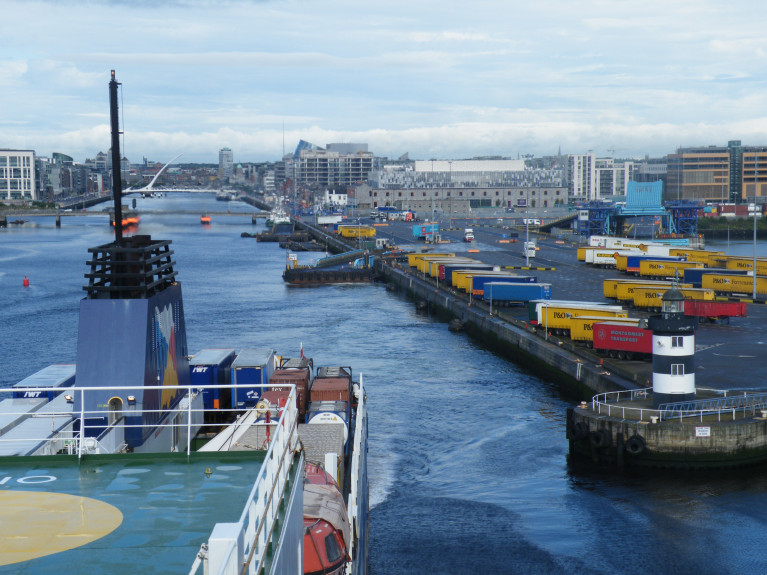In the UK, a maritime union has urged the Transport Secretary to revoke P&O Ferries' licences in British waters as the operator resumed services on one of its routes to Ireland.
P&O has said its services between Liverpool and Dublin have resumed as of Saturday afternoon.
Nautilus International general secretary Mark Dickinson has written to Grant Shapps encouraging the British Government to take urgent action against the ferry operator after it sacked 800 workers on (17th March). It is understood around 60 of those workers are from Ireland, with 25 from the Republic and 35 from Northern Ireland.
In a letter, published on Twitter, Mr Dickinson called for Mr Shapps to "hold P&O to account" in six ways, including revoking its licences to operate in British waters and pursuing "any legal option available" over how P&O handled the mass redundancies.
He wrote: "The action of P&O Ferries, terminating the employment of 800 British seafarers with immediate effect and without any consultation, is deplorable and a betrayal of British workers.
"This decision by P&O is a major blow to the British maritime industry... we cannot sit back and allow P&O Ferries to sink the nation's maritime strategy."
Mr Shapps wrote to Peter Hebblethwaite, chief executive of P&O, on Friday and said he was "questioning the legality of this move" and reviewing P&O Ferries' contracts.
It comes after the ferry operator said it was cutting the jobs in a "very difficult but necessary" decision as it was "not a viable business" in its current state.
Sailings were halted on Thursday morning following the announcement, with P&O Ferries telling passengers they would remain suspended "for the next few days".
However on Saturday, P&O said it had resumed one of its services crossing the Irish Sea. (Afloat adds this service of Dublin-Liverpool involved the Dutch flagged ropax Norbank whose seafarers are not part of the dispute due to different employment law based in the Netherlands).
The Independent.ie has more including a statement issued by P&O Ferries over the crewing arrangements.






























































